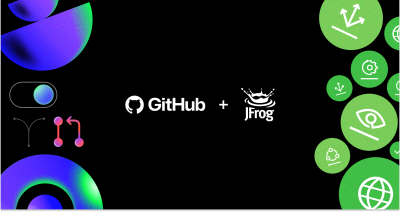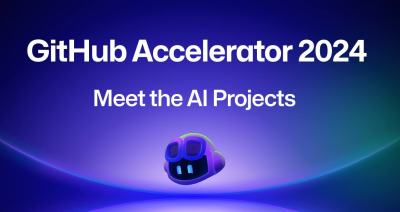Why we signed the Copenhagen Pledge on Tech for Democracy
As the home for developers, we understand the key role our communities play in steering digital transformation and maintaining societal infrastructure. That’s why we choose to drive and support policies and initiatives like the Copenhagen Pledge on Tech for Democracy. We’re committed to working with like-minded organizations, governments, and civil society to make digital technologies work for democracy and human rights, and we encourage you to join us in this pledge.

Today we’re proud to announce that we’ve signed the Copenhagen Pledge on Tech for Democracy. This represents our commitment to working with like-minded organizations, governments, and civil society to make digital technologies work for democracy and human rights. The pledge is one of a handful of multi-stakeholder initiatives we have joined including the Paris Call for Trust and Security in Cyberspace and the Cybersecurity Tech Accord. These are key moments to highlight the crucial role developers, collaborating globally with their peers, play in maintaining societal infrastructure. Also to engage additional stakeholders to support policies that enable developers to do their best work—and welcome more people to be developers.
The Pledge notes the importance of approaching the development and use of digital technologies with the goal of realizing the vision of an open, accessible, interoperable, secure, and reliable Internet. This is the type of Internet that fosters democratic culture and civic resilience—and not coincidentally, the type of Internet that allows developers to collaborate effectively, build critical infrastructure, and help solve some of the world’s most pressing problems. We encourage those who have signed the Pledge, along with stakeholders across the globe, to focus on supporting the open Internet, and exercise caution with actions that might disrupt that openness.
The Pledge calls on signatories to apply our shared democratic values and human rights–based approach in the design, development, deployment, and use of digital technologies. This resonates with us in many ways, particularly with regards to content moderation. We’ve carefully crafted policies that put developers at the center of moderating their own projects, prioritize transparency in our enforcement actions, and optimize for code collaboration. We have also contributed to human rights–oriented industry norms for content moderation.
Finally, the Pledge calls for the use of digital technologies to narrow digital divides, with a particular focus on marginalized, vulnerable, or disenfranchised groups worldwide. We’re pleased to see this, as it aligns with the policy work we do to make our platform as broadly available as possible, for example to developers in Iran.
Tech for Democracy, for Developers, for Everyone
We’re proud of the work we’ve done so far, but we know we have more work to do. We believe developers have a crucial role to play in building technology that fosters democracy and human rights. In turn, developers benefit from building such technology: the more technology is trusted, the more opportunity there is for them. Everyone benefits from more resilient and inclusive societies, and more resilient and inclusive technology. Over the long term, such parameters are key to the success of democracies, but also of all societies and social institutions. We encourage like-minded organizations to join us in signing the Copenhagen Pledge on Tech for Democracy.
Tags:
Written by
Related posts

GitHub and JFrog partner to unify code and binaries for DevSecOps
This partnership between GitHub and JFrog enables developers to manage code and binaries more efficiently on two of the most widely used developer platforms in the world.

2024 GitHub Accelerator: Meet the 11 projects shaping open source AI
Announcing the second cohort, delivering value to projects, and driving a new frontier.

Introducing GitHub Copilot Extensions: Unlocking unlimited possibilities with our ecosystem of partners
The world of Copilot is getting bigger, improving the developer experience by keeping developers in the flow longer and allowing them to do more in natural language.